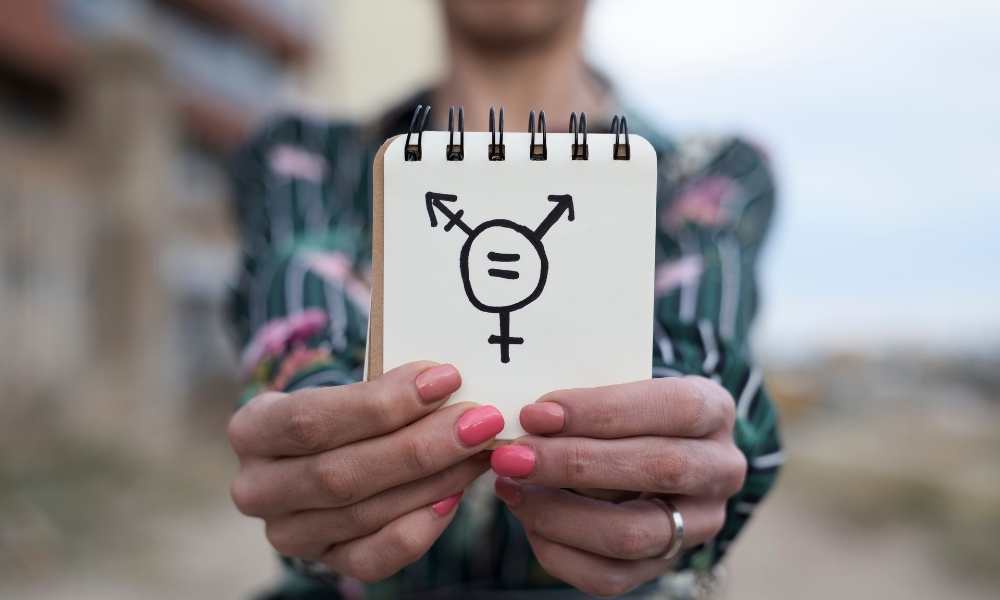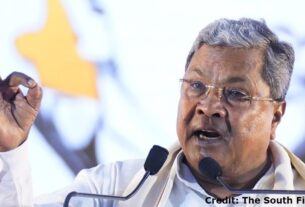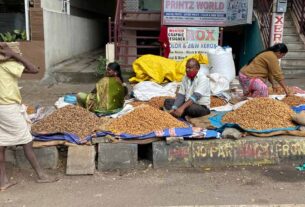Karnataka Sexual Minorities Forum says that at least 60 percent of the transgender community has no access to BPL cards.
Bengaluru: The state government is yet to create state and district cells for transgenders under its Policy on Transgenders, 2017.
The unavailability of the cells and a transgender census results in the community not getting access to Below Poverty Level (BPL) cards, government housing, Aadhar cards and monthly pension schemes, among others.
Rs. 75 lakhs were allocated for a baseline survey of the transgender community in Karnataka in 2019, but the survey has not even started, said Uma, founder of Jeeva, a non-governmental organization (NGO).
Community wants welfare schemes
Mallu K, State Coordinator, Karnataka Sexual Minorities Forum (KSMF), said that 40 percent of the transgender community does not have access to Aadhar cards and at least 60 percent has no access to Below Poverty Level (BPL) cards.
“One year back, the Santhwana Kendras or shelter homes prescribed under the policy shut down. Proper housing is crucial to stop crimes against homeless transgenders,” he added.
Currently, the transgender community demands five percent housing reservation under the policy. At least five in every 100 sanctioned houses should be given to the community, Mallu said.
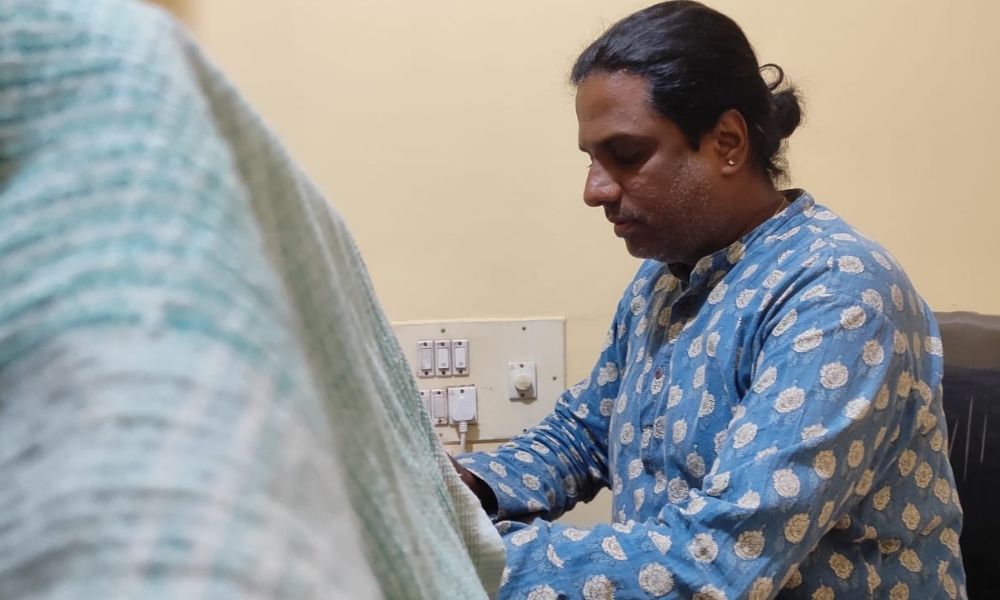
Shanthi, co-founder at Aravani Art Project, said, “I only get Rs. 600 per month under Mythri Pension Scheme. What can we even do with it? Other states like Tamil Nadu give around Rs. 2000.”
Pushpalatha H, Managing Director, Women Development Corporation (WDC) explained the delay in the implementation of the state-level cell. She said, “The work is still going on. It is the state government’s decision. No timeline has been decided yet, but we will be implementing it soon.”
Venkatesh, Personal Assistant to Managing Director, WDC added that implementation of a cell for Transgenders has been delayed due to new schemes which the government is still planning to introduce.
District-level cell not functional yet
In 2018, the government decided that the district-level cell for Transgenders will be presided over by the Deputy Commissioner of Bengaluru J. Manjunath. However, to date, the cell has not been created. “We don’t even have any official emails from the deputy commissioner’s office,” Mallu said.
Nishal BH, Assistant Director, Karnataka said, “Due to the pandemic, we could not hold meetings with the community. At least two times we had planned the meeting but postponed it, another time the deputy commissioner was not well. But it is our duty to implement the policy, and we are already working on issuing the ID cards. Any grievances from the community shall be dealt with immediately.”
Under the wrong department, community claims
The fact that the cell is to be established under the Women and Child Development Department is a point of contention for the community.
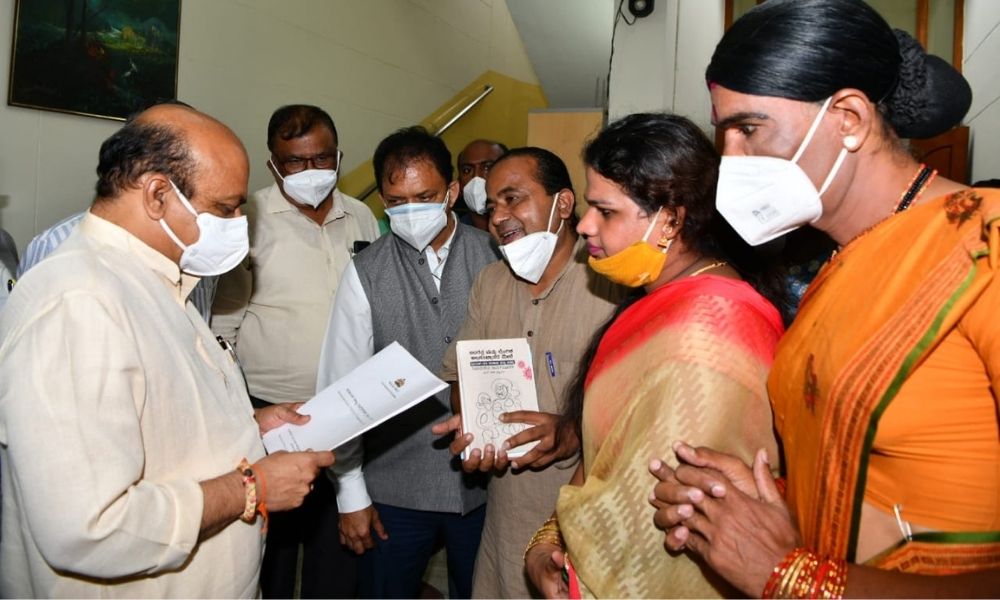
“Our demand to the chief minister was to shift the Cell for Transgenders from Women and Child Department to the Department of Social Welfare. Under the trans community, different people are identifying themselves as either trans men, or trans women, or with other non-binary gender pronouns. Everyone cannot come under the Women and Child Department,” Mallu said.
The group met with Karnataka Chief Minister Basavaraj Bommai on Aug. 30 to review the policy.
The Chief Minister’s Office said there have been no updates on the matter.
Akkai Padmashali, one of the drafting members of the policy said, ” After 2017, the political turmoil in the state halted the policy. Today, the government is just numb about the policy. Also, from the community side, unity still doesn’t exist. We go to the government as fragmented organizations and not just us.”
Dr. Sudeshna Mukherjee, Assistant Professor, Centre for Women’s Studies at Bangalore University said, “A policy as such is difficult to implement due to the vast diversity in our society, it’s not just transgenders but the entire cis and LGBTQIA pronouns. Certain policies are easy to enforce and can be done right away given the societal dynamics are already in place. Right to food or work are second-generations of human rights, difficult to implement. It is the intent of the state, as policymakers to produce the policies. Its correct implementation would often depend on community participation to realize a change.”
Slow policy implementation leads to sex working
*Reshma who works with Aravani Art Project, an initiative to raise awareness for transgenders in public spaces, is one of the hundreds of transgender people to take up sex work as their primary income source.
“I did not study beyond Pre-University because of the discrimination I faced in the society as a transgender woman. I moved to Bengaluru from Raichur to find a better life. Despite the policy, most transgender people don’t have access to jobs or subsidy schemes. We are left with no choice but sex work,” she said.
Silk, who is a trans-model said, “This is the truth we choose to ignore. Without proper access to housing, pension and food, transgender people will be sex workers.”
*Name changed to protect privacy

